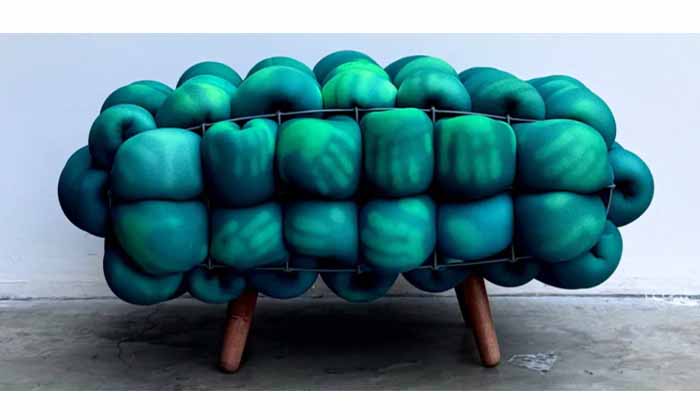Jacob Walls Unveils Touch-Responsive Pangolin Seating
London-based designer Jacob Walls has unveiled Pangolin, a seating collection that visibly reacts to human interaction. Made from industrial foam offcuts, the benches are hand-dyed with thermochromic pigments, allowing them to change colour in response to body heat. Much like a mood ring, each seat retains ghostly impressions of where someone has touched or sat — giving the furniture an almost sentient quality.
“Each section was dyed individually,” Walls said, “allowing for subtle tonal shifts across the surface. I was interested in creating a piece that didn’t just occupy space but responded to it.”
By exposing foam — a material usually hidden beneath upholstery — Walls shifts focus to what’s often overlooked. “It aligns with the work’s intent to uncover unseen relationships between people and objects,” he explained. The process also adds value to factory offcuts, transforming them into sculptural forms that are both sustainable and expressive.
A Modular Design Inspired by Nature
To unify disparate foam pieces, Walls wove them through a gridded metal frame, creating a bulbous, armour-like form that resembles a pangolin’s shell. The seating’s modular, bulged construction not only reveals its fragmented origins but also enhances its visual dynamism. Simple wood or metal legs support the design, keeping attention on the reactive surface.
Walls’ thermochromic seating joins a growing field of design innovation. Fellow designers like Joe Doucet are exploring similar pigments in climate-responsive house paint, while Anrealage presented UV-reactive fashion during Paris Fashion Week 2023.
Pangolin represents a tactile fusion of material innovation, emotional design, and environmental consciousness — where every seat tells a story of interaction.



Comments are closed.